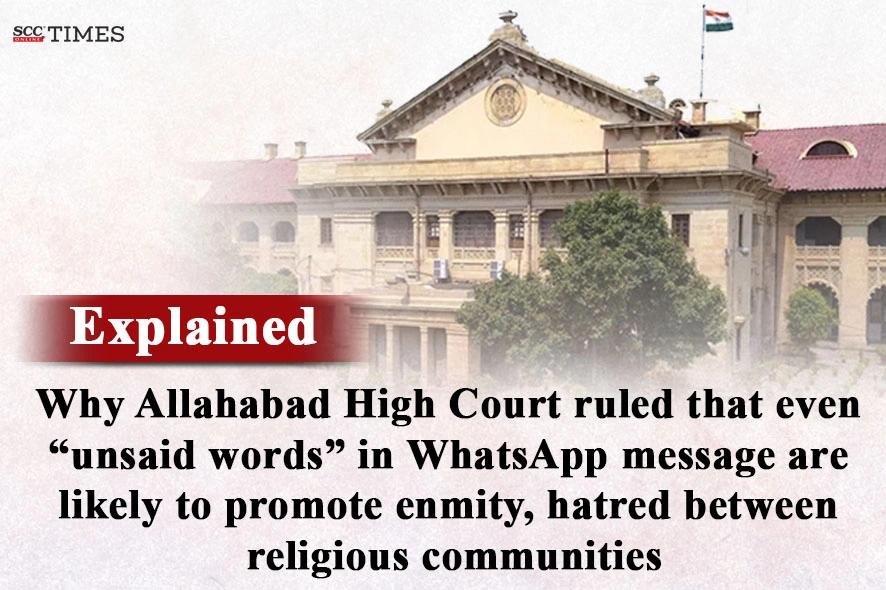Allahabad High Court: In a writ petition filed seeking quashing of an FIR lodged under Sections 299 and 353(3) of the Bharatiya Nyaya Sanhita, 2023 (‘the BNS’), against the accused for allegedly sending inflammatory messages regarding religious conversion of women and his brother’s arrest, the Division Bench of J.J. Munir And Pramod Kumar Srivastava, JJ., dismissed the petition, holding that the matter required investigation as the message sent by the accused conveyed an underlying and subtle message that his brother had been targeted in a false case because he belonged to a particular religious community.
Background
An FIR was lodged under Sections 296, 352, and 351(2) of the BNS against the accused’s brother. During the investigation, Sections 123, 64(1), 318(4), and 336(3) of the BNS, besides Section 3 of the Uttar Pradesh Prohibition of Unlawful Conversion of Religion Act, 2021 (‘the Act’), were also added, and the accused’s brother was arrested and produced before the Court.
Aggrieved, the accused allegedly sent inflammatory messages to some individuals regarding the religious conversion of women and the arrest of his brother. Accordingly, the impugned FIR was lodged against the accused, alleging that he had disturbed communal peace and outraged the religious feelings of a class of Indian citizens.
Hence, the present petition.
Analysis
The Court stated that the words of the said message, as quoted in the FIR, might not speak, per se, about religion, but definitely convey an underlying and subtle message that the accused’s brother had been targeted in a false case because he belonged to a particular religious community.
“These unsaid words in the message, prima facie, would outrage religious feelings of a class of citizens hailing from a particular community, who would think that they are being targeted because of belonging to a particular religious community.”
The Court further stated that, “even if one were to think that no religious feelings of a class of citizens or community have been outraged per se by the WhatsApp message, it is certainly a message, which, by its unsaid words, is likely to create or promote feelings of enmity, hatred and ill-will between religious communities, where members of a particular community, in the first instance, could think that they are being targeted by members of another religious community by abusing the process of law.”
Stating the aforesaid, the Court held that the act may not fall under Section 353(3), but prima facie would attract Section 353(2) of the BNS.
Thus, considering the overall context of the FIR and the manner in which the accused acted by sending out WhatsApp messages to a multitude of persons, which has the aforementioned potential, the Court opined that the accused was not entitled to a grant of relief under Article 226 of the Constitution.
Thus, the Court rejected the petition, holding that the matter required investigation and could not be scuttled at an initial stage, barring a probe that must be carried to its logical conclusion.
[Afaq Ahmad v. State of U.P., 2025 SCC OnLine All 6844, decided on 26-09-2025]
Disclaimer: This has been reported after the availability of the order of the Court and not on media reports so as to give an accurate report to our readers.
Advocates who appeared in this case:
For the petitioner: Syed Shahnawaz Shah
For the respondent: Shashi Shekhar Tiwari, Additional Government Advocate



